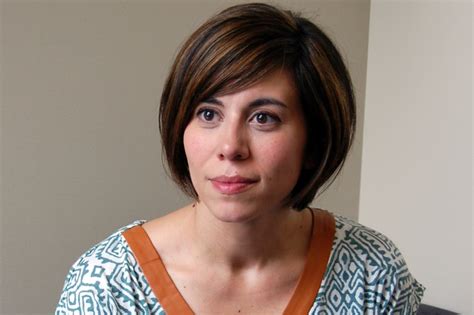A Quote by Linda Sue Park
I can give advice to anyone interested in writing in one word: Read! I think it's much more important to be a reader than to be a writer!
Related Quotes
As soon as I start to write I'm very aware, I'm trying to be aware that a reader just might well pick up this poem, a stranger. So when I'm writing - and I think that this is important for all writers - I'm trying to be a writer and a reader back and forth. I write two lines or three lines. I will immediately stop and turn into a reader instead of a writer, and I'll read those lines as if I had never seen them before and as if I had never written them.
It's insane to be a writer and not be a reader. When I'm writing I'm more likely to be reading four or five books at once, just in bits and pieces rather than subjecting myself to a really brilliant book and thinking, "Well what's the point of me writing anything?" I'm more likely to read a book through when I take a break from writing.
I know well enough that very few people who are supposedly interested in writing are interested in writing well. They are interested in publishing something, and if possible in making a "killing." They are interested in being a writer not in writing. . . If this is what you are interested in, I am not going to be much use to you.
No one can teach writing, but classes may stimulate the urge to write. If you are born a writer, you will inevitably and helplessly write. A born writer has self-knowledge. Read, read, read. And if you are a fiction writer, don't confine yourself to reading fiction. Every writer is first a wide reader.
No one can teach writing, but classes may stimulate the urge to write. If you are born a writer, you will inevitably and helplessly write. A born writer has self-knowledge. Read, read, read. And if you are a fiction writer, dont confine yourself to reading fiction. Every writer is first a wide reader.
Let the writer take up surgery or bricklaying if he is interested in technique. There is no mechanical way to get the writing done, no shortcut. The young writer would be a fool to follow a theory. Teach yourself by your own mistakes; people learn only by error. The good artist believes that nobody is good enough to give him advice. He has supreme vanity. No matter how much he admires the old writer, he wants to beat him.
Good writing, and this is especially important in a subject such as economics, must also involve the reader in the matter at hand. It is not enough to explain. The images that are in the mind of the writer must be made to reappear in the mind of the reader, and it is the absence of this ability that causes much economic writing to be condemned, quite properly, as abstract.
The best advice I can give on this is, once it's done, to put it away until you can read it with new eyes. Finish the short story, print it out, then put it in a drawer and write other things. When you're ready, pick it up and read it, as if you've never read it before. If there are things you aren't satisfied with as a reader, go in and fix them as a writer: that's revision.
I don't think that writing, real writing, has much to do with affirming belief--if anything it causes rifts and gaps in belief which make belief more complex and more textured, more real. Good writing unsettles, destroys both the author and the reader. From my perspective, there always has to be a tension between the writer and the monolithic elements of the culture, such as religion.
I think it's important to humanize history; fiction can help us remember. A lot of books I've read in the past have been so much more important than textbooks - there is an emotional connection with one particular person. I'm very much of a research-is-important type of fiction writer, even for contemporary fiction. I wrote about blogs in America and I've never blogged. But I read many, many blogs - usually about feminist things, or about race, or about hair.

































